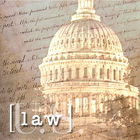
|
NEW AP REPORT SAYS POLITICAL APPOINTEES OVERRULED JUSTICE DEPT. ADVICE IN 3 MAJOR CASES 11 December 2005 A new AP report says political appointees at the Justice Department have overruled, without explanation, extensively researched advice from career staff at least three times, in each case apparently benefitting the political agenda of the Republican party. Two of the cases involved election laws which Justice lawyers believed would abridge the rights of minorities and the third involved a radical reduction in the penalties sought against tobacco companies. On 2 December, Sentido reported: New documents show Justice Department lawyers unanimously found the Texas Congressional redistricting plan to be illegal. But that finding was overruled by top Justice officials and the staff involved in the research and analysis "were subjected to an unusual gag rule", this according to the Washington Post. The strange circumstances surrounding the Texas redistricting case raise a number of questions about political machinery getting involved in determinations about the actual constitutionality of particular laws. The Texas law to redraw congressional districts was promoted most heavily by Texans for a Republican Majority (TRM), the political action committee (PAC) run by fmr House Majority Leader Tom DeLay. The law was specifically designed, according to TRM rhetoric and publicity, to ensure that Republicans gained seats, an aim not in keeping with legal requirements that representation be based on population in a given area. DeLay even told Fox News in September: "So we had an opportunity in 2002". It was not true there was an "opportunity" to redraw state congressional districts; the legal opportunity had already passed and changes had been implemented. The US Census Bureau has reported that as of 1 July 2004, Texas was a majority-minority state (50.2% minority), so the 34.4% of districts which are left "favoring" minorities seems entirely inadequate to ensure "a sufficient number of safe minority districts given the demographics of the state and the requirements of the law", as put forth by the 3-judge panel that approved the measure. An appeal to the US Supreme Court is still pending. The other electoral case involved a voting law change in Georgia. U.S. District Judge Harold Murphy, in reviewing the law compared it to the descriminatory laws of the "Jim Crow" era, but political appointees at Justice determined the law would not be unconstitutional and advised Georgia to implement it. The law required that voters obtain new voter ID cards in certain cases —more likely to occur among minorities— and travel to a select number of motor vehicle offices —likely to be at some distance— in order to obtain the cards, for a fee. Murphy's ruling has since blocked the Georgia law, but the ruling puts Justice Department actions in questionable light. He said the law amounts to an unconstitutional poll tax, and poses an undue constraint on the voting rights of people in predominantly minority districts. Justice Department officials, speaking to the AP, reportedly on condition of anonymity, for fear professional retribution, have said the Department has ordered that voting law research be presented in memo form with no official recommendation attached. The suggestion is clearly that top officials want more free rein to make politically involved judgements, without the messy trail of contradictory advice to haunt those judgements. In the third case of unusual overruling, the Justice Department ordered its lawyers to reduce the sought $130 billion for a "smoking cessation" program to be financed by the tobacco companies, to $10 billion. AG Gonzales has defended the action, saying it was driven by a court ruling barring high penalties. Critics, however, note that the ruling did not place an upper limit on penalties against the tobacco defendants, but rather ruled that the $280 billion sought in unlawfully won profits was not permissible in its entirety, as demanded, because it did not pose a "forward-looking" remedy. The smoking cessation program was specifically designed to be that sort of remedy, and its overwhelming reduction bears no apparent relation to the court's ruling. In fact, it appears to have originated in political offices at the top levels of the Justice Department. AG Gonzales also gave another defense, more sweeping than the 'court-order' argument for political appointees overruling constitutional arguments by the Department's professional legal experts. He has said that it is precisely the job of political appointees to seek and obtain advice from staff, then apply their own judgement. This does not, however, have any clear basis in law, and there has been no adequate public explanation for overruling or dismissing entirely, with no legal arguments of any kind presented, sound and in-depth legal and constitutional analysis. [s]
BACKGROUND: New documents show Justice Department lawyers unanimously found the Texas Congressional redistricting plan to be illegal. But that finding was overruled by top Justice officials and the staff involved in the research and analysis "were subjected to an unusual gag rule", this according to the Washington Post. [Full Story] A VAST LEFT-WING CONSPIRACY, SAYS DeLAY Under indictment for conspiracy in an alleged scheme to raise illegal campaign cash and conceal it through manipulation of his Political Action Committee, Rep. Tom DeLay (R-TX), stepped aside earlier this week as House Majority Leader. Congressional rules require that he leave his post while facing indictment. He has been reprimanded by Congress three times already for "objectionable behavior". Dissatisfied Republicans are looking for new leadership. [Full Story] |
||||||
|
|||||||


